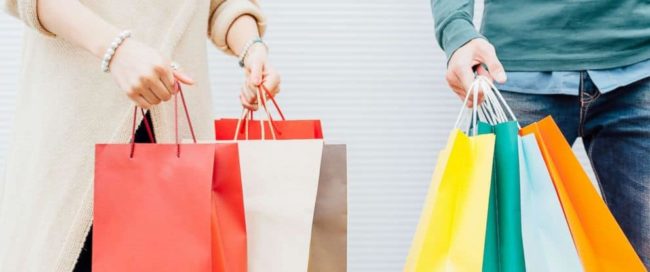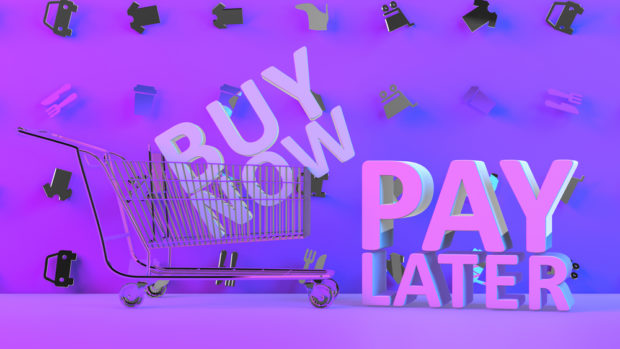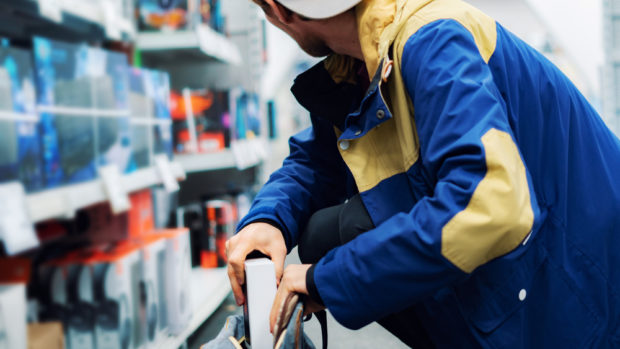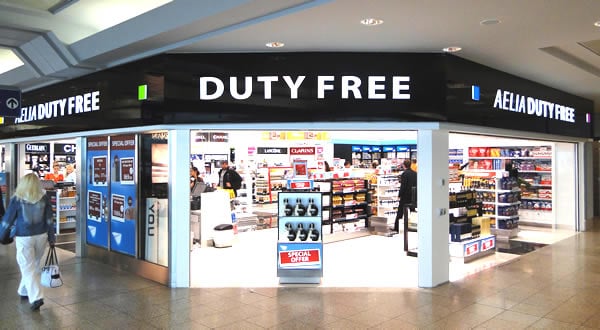
A new survey lifts the lid on how UK consumer purchasing has increased during the lockdown and in what sectors. Commissioned by global commerce services company, PFS, the research also compares consumer behaviours and expectations in the UK with consumers in the US.
Consumer purchasing increases by sector
The research has found that 60 per cent of UK consumers admit to purchasing more during lockdown. Unsurprisingly, consumers report increased purchasing for food, with fresh groceries (26 per cent of consumers), long-life groceries (34 per cent) and household goods, such as cleaning products and toilet paper (30 per cent).
However, despite social interaction being severely limited, 19 per cent of consumers reported purchasing more healthcare products online, whilst 11 per cent have bought more beauty and cosmetics products and 6 per cent have bought more luxury goods online. 11 per cent also said they have purchased more technology online since the beginning of lockdown than before.
A quarter (25 per cent) of Millennials have increased their purchasing of home, garden and DIY products online, meanwhile, 12 per cent of Gen Z have purchased more footwear and 22 per cent have purchased more clothing.
Now used to physical stores being closed and despite the potential for a significant recession, 77 per cent of all consumers who have purchased more online during the lockdown expect to continue to do so after it has ended. 42 per cent say they will continue to purchase more groceries, including beverages, online. 20 per cent will continue to purchase more clothing, 11 per cent more footwear, 16 per cent more home, garden and DIY products, 18 per cent more healthcare, 11 per cent beauty and cosmetics, 6 per cent more luxury goods and 11 per cent will continue to purchase more technology online.
UK/US consumer behaviour and expectation comparisons
Social distancing and the COVID-19 Pandemic have encouraged almost four in ten (39 per cent) UK consumers and more than half (52 per cent) of UK millennials to buy goods online that they had not considered buying online before the COVID-19 Pandemic, compared to over six in ten consumers (63 per cent), 75 per cent of US Millennials.
Over seven in ten consumers in both the UK and US (71 per cent) expect delivery within a week or less during the COVID-19 Pandemic, compared to 90 per cent in the UK not during COVID-19 and 83 per cent in the US normally.
The research found that millennials are the most demanding age group with 19 per cent of UK Millennials and 24 per cent of US Millennials expecting delivery in 24 hours or less compared to 21 per cent normally in the UK and 26 per cent in the US, not during COVID-19.
Almost four in ten (39 per cent) US consumers and 51 per cent US Millennials agree they have shopped with online retailers they have not purchased from before during the COVID-19 Pandemic and intend to continue to shop with them after the good experience they had. This compares to 25 per cent agreement overall in the UK, 35 per cent with UK Millennials.
Zach Thomann, EVP & general manager at PFS, comments: “Our research has identified that aside from the obvious increase in purchasing of food and beverages, consumers have turned to online shopping to help them make it through the Coronavirus Pandemic, buying more cosmetics and clothes online than they did before. Interestingly, the majority see this increase in purchasing to continue after the lockdown. Brick-and-mortar retailers need to prepare now for this forced acceleration in the migration to online shopping.
“Interestingly, UK consumers have been more conservative than their US counterparts in terms of their increase in purchasing. They are also prepared to wait longer for their deliveries. However, it’s important to note that the US often leads the way and that as new technologies and services are trialled and become widely available, UK consumer expectations will likely rise. It’s important that online retailers and brands monitor and keep pace with the change to avoid disappointing customers.”








Share